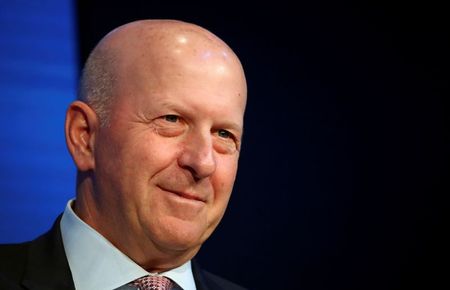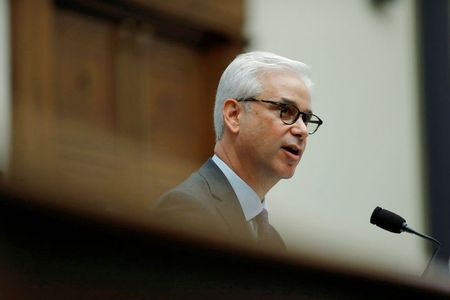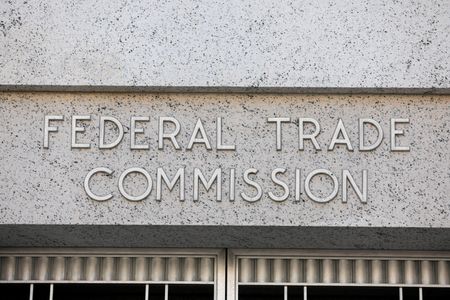By Matt Scuffham
NEW YORK (Reuters) -U.S. bank executives on Tuesday raised concerns about the impact of a sustained period of higher inflation, adding to pressure on the Federal Reserve to accelerate plans to wind down the pace of its asset purchases.
Senior bankers are increasingly concerned that higher inflation could impact borrowers’ ability to pay back loans, slow U.S.
economic growth and destabilize stock markets.
Wells Fargo Chief Executive Charlie Scharf said at a conference that the U.S. central bank may need to move quicker to address inflation concerns.
Goldman Sachs CEO David Solomon said he anticipated a period of higher inflation.
Bank of America CEO Brian Moynihan said his bank was running internal health checks to ensure its portfolios could withstand a return to 1970s-style inflation.
“We’ve been doing that for three or four quarters now figuring that we’d be at this place where inflation is real and out there,” Moynihan said at the Goldman Sachs Financial Services Conference.
Annual U.S. inflation increased from 1.4% to 13.3% from 1960 to 1979, while the country’s economic growth stagnated.
That had a marked impact on people’s lives, with the value of savings and the purchasing power of fixed incomes like pensions being undermined.
U.S.
inflation is running at more than twice the Fed’s flexible 2% annual target.
The International Monetary Fund last week warned of intensifying inflationary pressures, especially in the United States, and said U.S.
central bankers should focus more on inflation risks.
“There’s a case to be made that they (the Federal Reserve) should be moving faster than they’ve been moving,” Scharf said.
“Inflation is very, very real,” he said.
“Prices are significantly higher for inputs across most industries. Labor shortages and wage increases are extremely real. Whether that continues for several years is not all that relevant, but it certainly will have an impact over the next year or so.”
PANDEMIC’S SHADOW
The U.S.
central bank needs to be ready to respond to the possibility that inflation may not recede in the second half of next year as most forecasters currently expect, Fed Chair Jerome Powell said last week.
“My guess is now that there will be a quicker path to appropriate actions,” Scharf said.
Goldman Sachs’ Solomon anticipates inflation will be higher for a period but doesn’t expect a repeat of the cost rises of the 1970s, he said in an interview with CNBC.
“There’s a reasonable chance that we’re going to have inflation above trend for a period of time, but that doesn’t mean it has to be like the 1970s,” he said.
“You’ve got to be cautious and manage your risk appropriately.”
Solomon acknowledged “uncertainty” in global financial markets due to factors including the emergence of the Omicron COVID-19 variant and question marks over the pace at which the Fed and other central banks will reduce asset purchases.
The Fed has begun reducing its $120 billion in monthly purchases of Treasuries and mortgage-backed securities on a pace that would put it on track to complete the wind-down in mid-2022.
There is growing pressure on the central bank to accelerate the end of the bond-buying program, which was unveiled in 2020 to stem the economic fallout from the pandemic.
“We’re still not completely out of the pandemic.
There’s uncertainty that comes from that and that uncertainty is going to affect economic activity,” Solomon said.
“On top of that, we have shifts going on in fiscal and monetary policy to try to balance that.
There’s no question that this has been an unprecedented period, so it’s very hard to predict how we’re going to come out of this.”
(Reporting by Matt Scuffham, Editing by Louise Heavens, Emelia Sithole-Matarise and Paul Simao)












